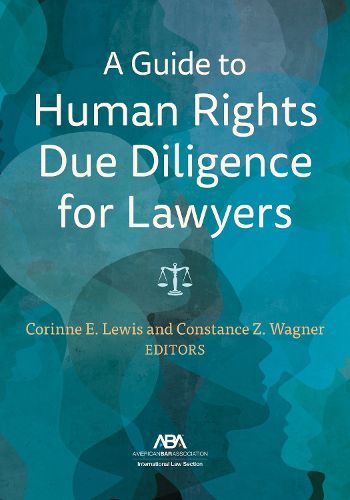Readings Newsletter
Become a Readings Member to make your shopping experience even easier.
Sign in or sign up for free!
You’re not far away from qualifying for FREE standard shipping within Australia
You’ve qualified for FREE standard shipping within Australia
The cart is loading…






Business clients are increasingly seeking their lawyers' advice and assistance with human rightsdue diligence (HRDD). Their clients must navigate compliance with a growing array of legalrequirements and soft law standards defining the expectations of governments, investors, andsociety that businesses respect human rights. Consequently, new opportunities are arising forlawyers to provide services and advice to businesses on HRDD.
This guide, intended for U.S. and foreign lawyers alike, is an indispensable resource on HRDD thatshould assist lawyers with understanding not only the fundamentals of HRDD but also crucial aspectsof the process.
Part I of the book examines the essentials of HRDD, including the HRDD process, lawyers' ethicalobligations related to HRDD, and key due diligence legal requirements. In Part II, practicalaspects of implementing HRDD are explored, including corporate governance, HRDD's relationship tocompliance approaches, use of grievance mechanisms, stakeholder engagement, gender-sensitive HRDD,and consultation with indigenous peoples.
In this rapidly developing area, lawyers also need to be aware of key developments that will affecthow their business clients perform HRDD. Therefore, the final section, Part III, addresses four ofthose key areas: suppliers in value chains, the financial sector, the intersection of environmentallaw and climate change issues with HRDD, and high-risk security situations, such as those incountries that are politically unstable or undergoing conflict.
The goal of the expert contributions to this book is to further lawyers' understanding and tofacilitate their role in assisting businesses to respect human rights, which should, at the sametime, foster businesses' contribution to sustainable developmentand the social factor of ESG (Environmental, Social, and Governance).
$9.00 standard shipping within Australia
FREE standard shipping within Australia for orders over $100.00
Express & International shipping calculated at checkout
Business clients are increasingly seeking their lawyers' advice and assistance with human rightsdue diligence (HRDD). Their clients must navigate compliance with a growing array of legalrequirements and soft law standards defining the expectations of governments, investors, andsociety that businesses respect human rights. Consequently, new opportunities are arising forlawyers to provide services and advice to businesses on HRDD.
This guide, intended for U.S. and foreign lawyers alike, is an indispensable resource on HRDD thatshould assist lawyers with understanding not only the fundamentals of HRDD but also crucial aspectsof the process.
Part I of the book examines the essentials of HRDD, including the HRDD process, lawyers' ethicalobligations related to HRDD, and key due diligence legal requirements. In Part II, practicalaspects of implementing HRDD are explored, including corporate governance, HRDD's relationship tocompliance approaches, use of grievance mechanisms, stakeholder engagement, gender-sensitive HRDD,and consultation with indigenous peoples.
In this rapidly developing area, lawyers also need to be aware of key developments that will affecthow their business clients perform HRDD. Therefore, the final section, Part III, addresses four ofthose key areas: suppliers in value chains, the financial sector, the intersection of environmentallaw and climate change issues with HRDD, and high-risk security situations, such as those incountries that are politically unstable or undergoing conflict.
The goal of the expert contributions to this book is to further lawyers' understanding and tofacilitate their role in assisting businesses to respect human rights, which should, at the sametime, foster businesses' contribution to sustainable developmentand the social factor of ESG (Environmental, Social, and Governance).